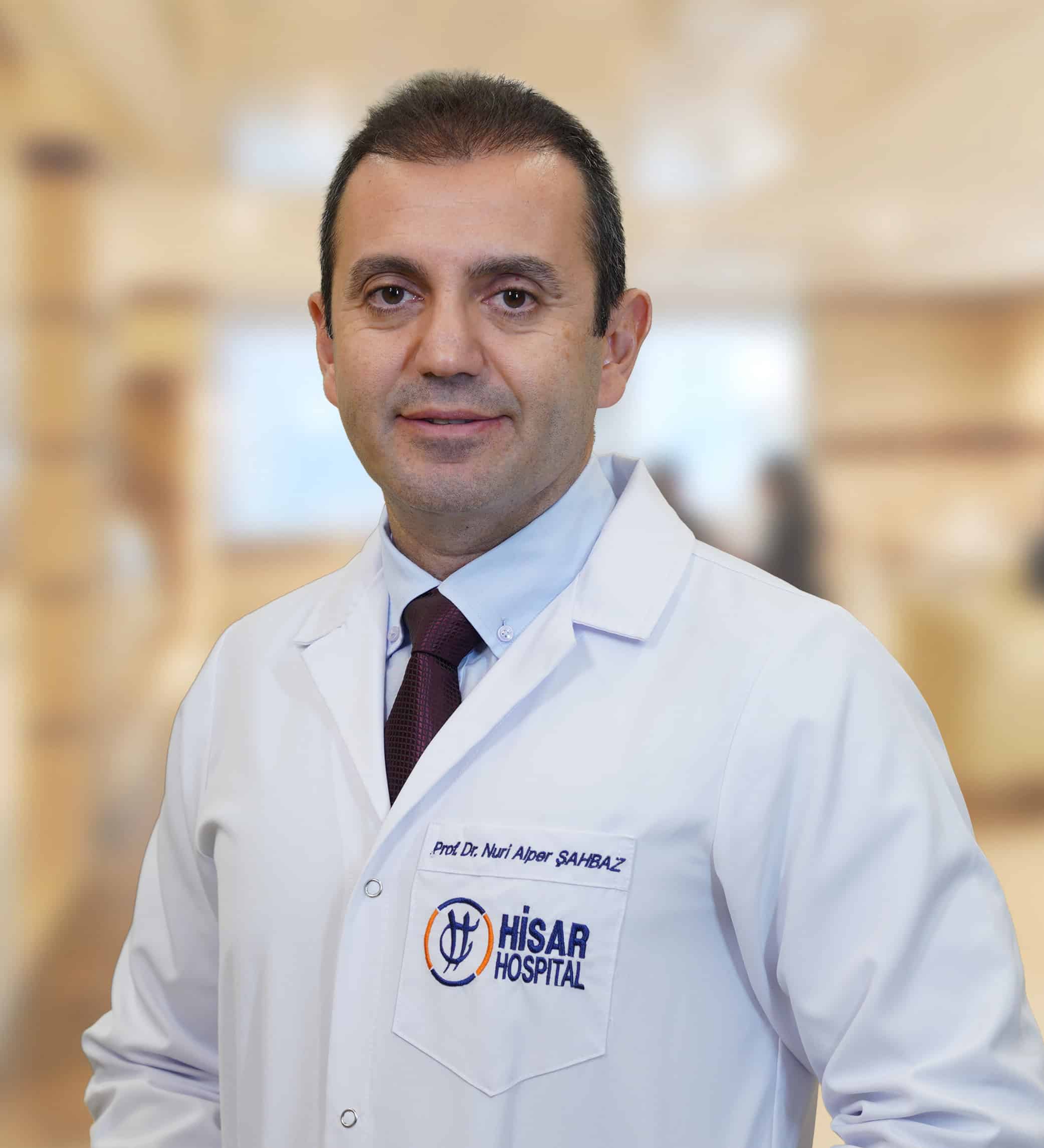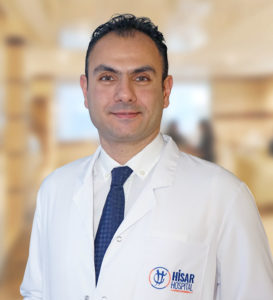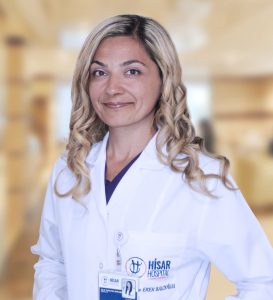The field of general surgery holds a significant and important place in the medical world. The general surgery department, which performs surgical procedures on all areas of the body except the brain and skeletal system, includes a highly educated and well-equipped team. In the field of general surgery, not only surgeries but also procedures such as intensive care and surgical infection treatments can be performed.
What is General Surgery?
General surgery is a branch of medicine that performs surgical interventions to treat various diseases, injuries, and conditions. General surgeons working in this field are trained professionals with expertise in performing operations on various parts of the body.
General surgery covers an extensive range and includes procedures related to the digestive system, endocrine system, vascular system, and more. Surgeons often specialize in treating conditions such as appendicitis, gallbladder issues, hernias, gastrointestinal problems, and various types of cancer. They also play a crucial role in emergencies, trauma cases, and life-saving operations. However, for individuals under the age of 16, pediatric general surgery handles their needs instead of general surgery.
One of the key aspects of general surgery is the ability to discover and recommend the correct surgical interventions. General surgeons work closely with other medical professionals, including radiologists, anesthetists, and internists, to provide comprehensive patient care. To provide effective treatment, they use a combination of technical knowledge, surgical skills, and technological advancements. Becoming a general surgery specialist is a challenging process, requiring six years of medical school followed by a five-year general surgery residency program. During this time, surgeons develop skills in both traditional and minimally invasive surgical techniques.
What Are General Surgery Diseases?
The field of general surgery deals with diseases that require surgical intervention in many organs of the body. General surgery diseases include:
- Appendicitis: This condition refers to the inflammation of the appendix, and surgical removal is often necessary.
- Gallstones: In severe cases, surgical removal of the gallbladder may be required.
- Gastroesophageal Reflux Disease (GERD): Surgery may be necessary to alleviate persistent and severe reflux symptoms.
- Inguinal Hernia: This occurs when tissue protrudes through a weak spot in the muscles of the groin area.
- Ventral Hernia: This is the protrusion of internal organs through a weakened abdominal wall, usually requiring surgical repair.
- Colon and Rectum Cancer: Tumors in these areas may require surgical removal.
- Breast Cancer: General surgeons can perform mastectomy or lumpectomy procedures.
- Thyroid Nodules: Surgical intervention may be necessary to remove nodules causing various problems.
- Hyperparathyroidism: Surgery may be required to remove overactive parathyroid glands that secrete excessive hormones.
- Varicose Veins: General surgeons may use vein stripping or laser treatment for varicose veins.
- Aneurysms: Surgical intervention may be necessary to repair weakened blood vessel walls.
- Inflammatory Bowel Disease (IBD): Surgery may be considered to treat complications such as narrowing or blockages in the intestines.
- Diverticulitis: Surgery may be required if severe or complications arise from pouches formed in the large intestine.
- Skin Cancer: General surgeons can perform excisions to remove malignant skin tumors.
- Abscess: Surgical drainage may be required for painful or recurrent abscesses.
What Are the Symptoms of General Surgery Diseases?
Since general surgery covers a wide range of body organs and systems, the symptoms of surgical diseases vary depending on the condition. One of the most common symptoms associated with general surgery diseases is abdominal pain. This pain can be sharp, crampy, or dull, and may be localized to a specific area or spread throughout the abdomen. The intensity of the pain can also vary. Other symptoms include digestive problems. Symptoms such as nausea, vomiting, bloating, diarrhea, constipation, or changes in bowel habits may occur. These symptoms may indicate conditions such as appendicitis, gallbladder disease, or gastrointestinal obstruction.
Some general surgery diseases cause abnormal masses or swelling in different parts of the body. This can manifest as hernias, tumors, or enlarged organs. These masses may be palpable or visible depending on their location. Another symptom is infections. Infections are common in surgical conditions and can present as fever, chills, or fatigue. Redness, warmth, and tenderness may also develop in the affected area. Unexplained weight loss or gain is also an important symptom and can be a sign of various general surgery diseases. Conditions such as cancer, thyroid disorders, or gastrointestinal diseases can affect metabolism and lead to weight changes.
These types of symptoms are not always indicative of a surgical disease. However, if you experience persistent or severe symptoms, it is important to seek medical attention promptly. The doctor can determine the underlying cause of the symptoms using various methods such as physical examinations and diagnostic tests and can recommend an appropriate treatment plan.
How Are General Surgery Diseases Diagnosed?
The diagnosis of diseases in the general surgery department involves a detailed and collaborative approach between healthcare teams and patients. Each disease has its own unique diagnostic methods, but the general procedure is as follows:
- Medical History: The first step in diagnosing general surgery diseases is taking a detailed medical history. Healthcare teams ask about the patient’s symptoms, how long they have been present, and any factors that worsen or alleviate the symptoms. Previous surgeries, medical conditions, or family history related to the issues are also important in understanding overall health.
- Physical Examination: A physical examination is performed to assess specific symptoms. The healthcare professional may palpate the abdominal area to check for masses or swelling and evaluate other relevant areas. This examination helps identify potential sources of the problem and guides further diagnostic investigations.
- Laboratory Tests: Blood tests may be ordered to evaluate organ function, detect infections, or assess the levels of specific substances in the body.
- Imaging Studies: Diagnostic imaging plays a crucial role in identifying structural abnormalities. X-rays, ultrasounds, CT scans, and magnetic resonance imaging (MRI) are frequently used to visualize organs and tissues.
- Endoscopy: An endoscopy can be performed using a flexible tube with a light and camera to examine the inside of internal organs. Endoscopy or colonoscopy can be used to visualize the inside of the digestive system, detect abnormalities, and take tissue samples for biopsy.
- Biopsy: In some cases, a biopsy may be required to understand the structure of a suspicious lesion or mass. A small tissue sample is taken for examination under a microscope. Biopsies help determine whether the growth is benign or malignant and guide further treatment decisions.
How Are General Surgery Diseases Treated?
The treatment of diseases related to general surgery involves a personalized approach, as each condition requires a unique strategy. These include:
- Conservative Treatment: Many general surgery diseases can initially be managed through conservative approaches. Lifestyle changes, dietary adjustments, medications, and physical therapy may be recommended to alleviate symptoms or slow the progression of the condition.
- Medications: Medications play a critical role in treating various general surgery diseases. Medications are often used alongside other treatment methods to achieve more efficient results.
- Surgical Interventions: When conservative measures are insufficient, surgical intervention may be required. Surgeries may involve removing diseased organs, repairing hernias, or excising tumors. The choice of procedure depends on the disease and its severity.
- Endoscopic Procedures: Endoscopy may be a healthier option for some conditions. Gastrointestinal problems, bile duct issues, or early-stage tumors can often be addressed through endoscopic procedures.
- Radiation and Chemotherapy: For certain cancers or tumors that cannot be fully managed through surgery alone, radiation therapy or chemotherapy may be recommended.
- Rehabilitation and Follow-up Care: Post-surgical rehabilitation is crucial for a successful recovery. Physical therapy, dietary adjustments, and lifestyle changes may be recommended to regain strength and prevent complications.
- Multidisciplinary Approach: Many general surgery diseases benefit from a multidisciplinary approach. Surgeons work with other specialists, such as gastroenterologists, oncologists, or radiologists, to provide comprehensive and coordinated care. This approach is important for complex conditions or those involving multiple organ systems.
Frequently Asked Questions
Surgery is divided
into various specialties that address specific aspects of health:
- General surgery
- Orthopedic surgery
- Cardiovascular surgery
- Neurosurgery
- Plastic and reconstructive surgery
- Urology
- Gynecological surgery
- Pediatric surgery
- Thoracic surgery
- Otolaryngological surgery
- Oncological surgery
- Pediatric General Surgery
General surgeons carefully examine patients by taking detailed medical histories, asking about symptoms, and performing physical examinations. Using their expertise, they assess various systems to check for abnormalities or signs of disease. They may request diagnostic tests such as imaging or laboratory tests to confirm diagnoses and guide treatment plans.
Although general surgery and internal medicine are related, they are fundamentally different fields. General surgery focuses on surgical interventions, while internal medicine focuses on medical treatment. For example, internal medicine aims to manage complex diseases such as diabetes or heart conditions through medications and lifestyle interventions.
Yes, general surgeons can perform endoscopy when necessary. This procedure allows the surgeon to examine various problems, helping with diagnosis and treatment planning.
I am text block. Click edit button to change this text. Lorem ipsum dolor sit amet, consectetur adipiscing elit. Ut elit tellus, luctus nec ullamcorper mattis, pulvinar dapibus leo.
Yes, like endoscopy, colonoscopy is one of the procedures performed by general surgeons. This procedure involves inserting a flexible tube with a camera at the end into the colon to examine abnormalities inside. Female patients who are undergoing a colonoscopy may sometimes prefer to be examined by a female surgeon. Experienced and successful surgical physicians in colonoscopy can provide colonoscopy services.
The field of general surgery is one that many patients frequently consult. If you experience one or more of the symptoms mentioned in the text, you can visit the nearest healthcare facility for early diagnosis and treatment. This way, you can get information about the general surgery appointment process.





